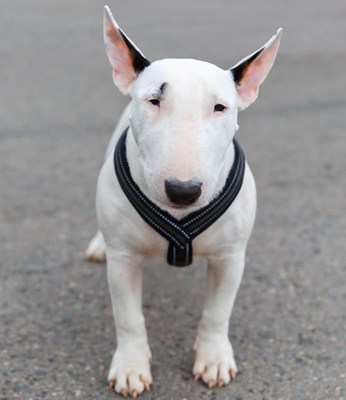Is your family prepared for when a disaster may strike? Whether it’s a wildfire, house fire, earthquake or severe snowstorm, Mountain Communities residents must always be prepared to evacuate their homes on short notice. With a little-advanced planning, you can easily include your pet should disaster strike.
Before a Disaster
Plan ahead. In the event of an evacuation, pets may not be allowed inside human emergency shelters. The Red Cross cannot accept pets due to health and safety regulations. The only exception is for service animals. Usually, animal control or a local rescue agency will provide a pet sheltering location nearby. That may not always be the case. Do you know the best place to leave or take your pet in case of disaster? Identify an off-site location and be sure all family members are aware of it. Mountain Aire will accept animals into the boarding kennel to shelter them during an emergency (at regular boarding fees), however, space is very limited. Keep in mind that depending on the situation, the hospital may have to be evacuated, too.
Identification and photographs are vital. Pets should always wear collars with tags that have current information (rabies vaccinations, home addresses, and phone numbers). Remember that tags can fall off and collars can be removed, so a sub-dermal microchip is the best way to safeguard your pet. Keep a current photograph of each pet and make sure distinguishing markings are visible. You will have to prove ownership to retrieve your pet from a shelter. Keep photographs of your pets with you or other family members.

Maintain a Disaster Kit for each member of your family and each of your pets. For pets, you should include:
- Your veterinarian’s contact information
- Portable radio and extra batteries
- Pet carrier or cage for each pet
- Two week supply of food and water
- Two week supply of all medication with dosing instructions
- Non-spill food and water bowls
- First aid kit for pets
- Gauze Roll (2” width)
- Elastic Cling Bandage
- Adhesive Tape (hypoallergenic)
- Small Scissors
- Nylon Leash
- Muzzle
- Compact Emergency Blanket
- Topical Antibiotic Ointment
- Instant Cold Pack
- Sterile Eye Lubricant
- Sterile Saline Wash
- Diphenhydramine (Benadryl)
- Plastic Card
- Tweezers
- Latex Gloves
- Alcohol Prep Pads
- List of Emergency Phone Numbers
- Pet vaccination and medical records
- Cat litter box and litter
- Newspaper
- Toys and blankets
- Plastic bags for waste disposal
- Paper towels
- Leashes or harnesses for each pet
- A current photograph of you with each pet
During a Disaster
Listen to the Emergency Alert System on the television or radio. Register with www.ReadyKern.com to receive state-of-the-art alerts for disasters and other crises in the county.
If you can, evacuate your pet early. Leave before the crisis escalates. This is especially significant for pet owners that also have large animals or livestock that need to be moved in trailers. The single most important thing you can do to save your pet’s life is to take him or her with you. Take your disaster preparedness kit, medical records and all forms of identification.
If you cannot take your pet, bring it indoors as soon as you are aware of imminent danger. Never leave a pet chained outside. Prepare a preselected, easily cleaned room without windows but adequate ventilation. Make sure there is plenty of water and dry food in non-spill containers. Faucets can be set to drip into large, partially filled containers or bathtubs. Do not leave wet food, treats or vitamins as they can sour or be fatal if over-eaten. House dogs and cats separately, even if they usually get along. Do not chain or lock your pet in a cage.
If you lose your pet, visit shelters at least once every other day. Keep a current photo of your pet that shows distinctive colors and markings. Create a flyer and post it visibly around town. And once you find your pet, examine it immediately for injury or illness – but use caution. Panicky or injured animals may bite no matter how sweet they normally behave.
After a Disaster
Pet behavior will change during an emergency. Remember your pet is confused and frightened by what’s going on. Monitor your pet closely and keep them leashed with you at all times. Familiar scents and landmarks will probably be altered which will only serve to confuse your pet even more.
If you find a lost pet, contact local shelters to spread the word – their owner is just as worried as you would be. Keep it isolated from your pets until it can be returned.
This information has been adapted from a California Veterinary Medical Association brochure. For more information, go to www.cvma.net.

